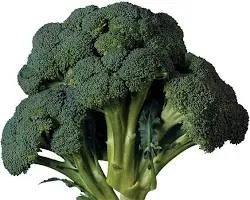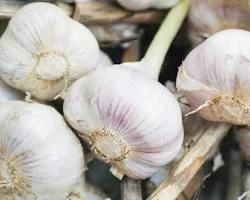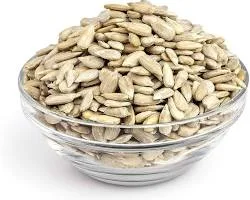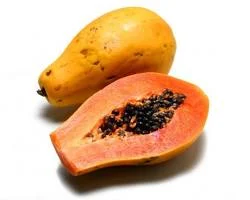How to boost your immune system with healthy foods and supplements
Introduction to the immune system
The immune system is a complex network of cells, tissues, and organs that work together to protect the body from harmful invaders, such as bacteria, viruses, parasites, and toxins.
The immune system also helps to regulate inflammation, which is a normal response to injury or infection but can become chronic and cause damage if not controlled.
The immune system can be influenced by many factors, such as genetics, age, stress, lifestyle, and environmental exposures.
However, one of the most important and modifiable factors is nutrition.
Nutrition plays a vital role in supporting the immune system by providing the essential nutrients that are needed for its proper functioning and maintenance.
Table of Contents
The Importance of a Strong Immune System
A strong immune system is essential for protecting your body from harmful invaders such as bacteria, viruses, fungi, and parasites that can cause infections and diseases.
Your immune system consists of a complex network of organs, cells, chemicals, and proteins that work together to recognize and eliminate these pathogens, as well as abnormal cells like cancer cells. A healthy immune system also helps your body heal faster when you are injured or sick.
Many factors can affect your immune system function, such as age, stress, diet, exercise, sleep, and lifestyle habits. Some of these factors are beyond your control, but others can be improved by following some simple guidelines. Here are some tips to help you boost your immune system naturally:
Eat a balanced diet that is rich in fruits, vegetables, whole grains, lean proteins, healthy fats, nuts, seeds, and legumes. These foods provide vitamins, minerals, antioxidants, and fiber that support your immune system. Some of the best immune-boosting foods include citrus fruits, red peppers, broccoli, spinach, almonds, chicken, shellfish, and sunflower seeds.
Avoid smoking and limit alcohol consumption, as these habits can weaken your immune system and increase your risk of infections and chronic diseases.
Exercise regularly, as physical activity can help improve blood circulation, reduce inflammation, lower stress levels, and enhance your mood. Aim for at least 150 minutes of moderate-intensity exercise per week or 75 minutes of vigorous-intensity exercise per week.
Get enough sleep, as sleep is crucial for restoring your energy, repairing your tissues, and regulating your hormones. Lack of sleep can impair your immune system and make you more prone to infections and illnesses. Try to get at least seven to nine hours of quality sleep every night.
Manage stress effectively, as stress can hurt your immune system and your overall health. Chronic stress can increase inflammation, lower your resistance to pathogens, and disrupt your hormonal balance. Find healthy ways to cope with stress, such as meditation, yoga, breathing exercises, hobbies, or social support.
Keep up with your vaccinations, as vaccines can help prevent serious diseases by stimulating your immune system to produce antibodies against specific pathogens. Follow the recommended vaccination schedule for your age group and consult your doctor if you have any questions or concerns.
By following these tips, you can help strengthen your immune system and improve your health and well-being. Remember that a strong immune system is not only important for fighting off infections and diseases but also for maintaining a healthy mind and body.
What are the essential nutrients for the immune system?
The immune system is a complex network of cells and organs that protects the body from harmful pathogens, such as bacteria, viruses, and parasites. To function properly, the immune system requires adequate amounts of several nutrients that support its growth and activity. Some of the essential nutrients for immune function are:
- Vitamin A: This vitamin helps protect the skin and mucous membranes that act as barriers against infections. It also regulates the production and function of immune cells, such as natural killer cells and T cells. Vitamin A is found in orange and red fruits and vegetables, such as carrots, apricots, and bell peppers.
- Vitamin C: This vitamin stimulates the formation of antibodies, which are proteins that bind to and neutralize foreign substances. It also enhances the production, function, and movement of white blood cells, such as neutrophils and lymphocytes. Vitamin C is found in citrus fruits, such as oranges and grapefruit, as well as strawberries and tomatoes Source.
- Vitamin D: This vitamin helps regulate the expression of antimicrobial proteins that can directly kill pathogens. It also modulates the activity of immune cells, such as macrophages and dendritic cells, and influences the balance between inflammatory and anti-inflammatory responses.
Vitamin D is mainly produced by the skin when exposed to sunlight, but it can also be obtained from fatty fish, such as salmon, egg yolks, and fortified dairy products. Source
- Vitamin E: This vitamin works as an antioxidant to protect the integrity of cell membranes from damage caused by free radicals, which are unstable molecules that can harm healthy cells. It also supports the function of immune cells, such as natural killer cells and B cells. Vitamin E is found in seeds, nuts, vegetable oils, and peanut butter. Source
- Zinc: This mineral is needed for wound healing and supports immune response. It is involved in the development and activation of immune cells, such as T cells and natural killer cells. It also regulates the expression of genes related to immunity and inflammation. Zinc is found in meats, whole grains, milk, seeds, and nuts. Source: bbc.co.uk
- Selenium: This mineral is also an antioxidant that protects cell membranes from oxidative stress. It is essential for the synthesis of selenoproteins, which are involved in various aspects of immunity, such as regulating inflammation, enhancing antiviral defense, and modulating adaptive immunity. Selenium is found in seafood, meat, poultry, eggs, dairy products, and Brazil nuts. Source
- Iron: This mineral is a component of enzymes critical for immune cell function. It is required for the production of red blood cells, which carry oxygen to all tissues in the body. It also supports the proliferation and differentiation of immune cells, such as lymphocytes and macrophages. Iron is found in red meat, beans, nuts, and fortified breakfast cereals. Source
A balanced diet that provides adequate amounts of these nutrients can help maintain a functional immune system that can fight off infections and diseases.
However, consuming excessive amounts of these nutrients can have adverse effects on immunity and health. Therefore, it is advisable to obtain these nutrients from food rather than supplements unless there is a clinical deficiency or increased need due to certain conditions. Source
What foods boost the immune system most?
Maintaining a robust immune system is crucial for safeguarding your body from a myriad of infections and illnesses. While genetics play a role in immune function, lifestyle choices, particularly dietary habits, significantly impact its strength.
Incorporating immune-boosting foods into your diet can provide the essential nutrients your body needs to fend off pathogens and promote overall well-being.
Citrus fruits, such as oranges, grapefruits, and tangerines, are renowned for their rich vitamin C content, a vital antioxidant that bolsters immune cell activity and enhances collagen production, essential for wound healing.
Bell peppers, particularly red bell peppers, are another excellent source of vitamin C, along with vitamin A, crucial for maintaining healthy skin and mucous membranes, the body's first line of defense against infection.
Broccoli, a cruciferous vegetable, is packed with nutrients, including vitamin C, vitamin A, and fiber, which play a vital role in promoting gut health, and indirectly influencing immune system modulation.
Garlic, a culinary staple, has been traditionally used as a natural remedy for infections due to its antibacterial, antifungal, and antiviral properties. Consuming garlic regularly can help combat various infections.
Ginger, another versatile spice, possesses anti-inflammatory and immune-boosting properties. Studies have shown its effectiveness in reducing the severity of cold and flu symptoms.
Spinach, a leafy green vegetable, provides a wealth of vitamin C, vitamin A, and folate, essential for cell growth and repair, and crucial for optimal immune function.
Yogurt, a fermented dairy product, contains probiotics, beneficial bacteria that contribute to gut health, indirectly influencing immune system function.
Almonds, a nutrient-dense nut, are an excellent source of vitamin E, an antioxidant that protects cells from damage. They are also a good source of zinc, crucial for immune system function.
Sunflower seeds, another nutritional powerhouse, are a good source of vitamin E, zinc, and magnesium, which helps regulate the immune system.
Turmeric, a spice commonly used in Indian cuisine, contains curcumin, a compound with potent anti-inflammatory and immune-boosting properties. Studies have demonstrated its effectiveness in reducing inflammation, thereby protecting the body from infection.
Green tea, a popular beverage, is rich in antioxidants, including polyphenols, which have been shown to enhance immune function by protecting cells from damage.
Papaya, a tropical fruit, is an excellent source of vitamin C and vitamin A. It also contains papain, an enzyme with anti-inflammatory properties.
Kiwi, a nutrient-rich fruit, is a good source of vitamin C, vitamin E, and fiber. It also contains potassium, which is essential for muscle function.
Poultry, such as chicken and turkey, is a good source of lean protein, essential for immune cell function. It is also a good source of zinc, which is important for wound healing.
Shellfish, including shrimp, oysters, and clams, are a good source of zinc and protein. They are also a good source of omega-3 fatty acids, which have anti-inflammatory properties.
How to Choose Supplements Wisely
Supplements are products that contain vitamins, minerals, herbs, or other substances that are intended to enhance or complement the diet. Supplements can have various health benefits, such as preventing deficiencies, supporting immune function, or improving performance.
However, not all supplements are safe, effective, or necessary for everyone. Therefore, it is important to choose supplements wisely and consult with a healthcare provider before taking them. Here are some tips on how to choose supplements wisely:
Know your needs. Different people may have different nutritional needs depending on their age, gender, health status, lifestyle, or dietary preferences.
For example, pregnant women may need more folic acid, vegans may need more vitamin B12, and athletes may need more protein. You can assess your needs by keeping a food diary, taking a blood test, or talking to a nutritionist.
Do your research. Before buying or taking any supplement, you should do some research on its ingredients, benefits, safety, quality, and effectiveness.
You can look for reliable sources of information such as scientific journals, government websites, or reputable organizations. You should also check the label of the supplement for the dosage, expiration date, and any warnings or contraindications.
Choose reputable brands. Not all supplements are regulated or tested by the government or independent agencies. Therefore, some supplements may contain contaminants, adulterants, or inaccurate amounts of ingredients.
To avoid these risks, you should choose supplements from reputable brands that have certifications or seals of approval from organizations such as NSF International, USP, or ConsumerLab.com.
Follow the directions. Taking too much or too little of a supplement can have negative consequences for your health. Therefore, you should follow the directions on the label or the advice of your healthcare provider when taking supplements. You should also be aware of any potential interactions between supplements and medications or foods that you are taking.
Monitor your results. After taking supplements for a while, you should monitor your results and see if they are meeting your expectations and goals.
You can measure your results by tracking your symptoms, blood levels, performance indicators, or quality of life. You should also report any side effects or adverse reactions to your healthcare provider and stop taking the supplement if necessary.
Healthy Habits for Immune Support
Your immune system is your body's natural defense against disease-causing microorganisms. To keep it working properly, you need to adopt some healthy habits that can strengthen your immunity and help you fight off infections. Here are some of the most important habits for immune support:
Get enough sleep. Sleep is essential for your immune system to function well. Aim for at least 7 hours of sleep per night, and avoid screen time before bed to improve your sleep quality.
Eat more whole plant foods.
Fruits, vegetables, nuts, seeds, and legumes are rich in antioxidants, fiber, and vitamin C, which can reduce inflammation and feed your gut microbiome. A healthy gut can prevent harmful pathogens from entering your body through your digestive tract.
Eat more healthy fats. Olive oil, salmon, and other sources of omega-3 fatty acids can boost your immune response by decreasing inflammation. Chronic inflammation can impair your immune system and increase your risk of various diseases.
Get vaccinated. Vaccines are one of the most effective ways to protect yourself from preventable diseases. They prime your immune system to recognize and fight off specific pathogens before they cause serious harm. Keep current with all recommended vaccines and consult your doctor if you have any questions or concerns.
Conclusion
Nutrition is one of the most important factors influencing our immune system, protecting us from infections and diseases. A balanced diet that includes a variety of foods, such as fruits, vegetables, whole grains, lean proteins, healthy fats, and probiotics, can provide us with the essential nutrients that our immune system needs to function properly.
Some of these nutrients are vitamins A, C, D, E, zinc, selenium, iron, and omega-3 fatty acids. These nutrients help our immune cells to produce antibodies, fight inflammation, and regulate immune responses. By eating well, we can also avoid deficiencies that can weaken our immune system and make us more susceptible to illness.
Therefore, it is vital to prioritize nutrition for a robust immune system. Not only will it help us to prevent or recover from infections, but it will also support our overall health and well-being. Nutrition is not the only factor that affects our immunity, but it is one of the most controllable and modifiable ones.
We can choose what we eat every day and make sure that we are getting enough of the right foods for our immune system. By doing so, we can enhance our body's natural defense system and enjoy a healthier and happier life.
Frequently Asked Questions
Frequently Asked Questions: Address common queries related to immune system boost and nutrition health.
Q: What is the immune system and why is it important?
A: The immune system is a complex network of cells, tissues, and organs that work together to protect the body from harmful germs, such as bacteria, viruses, fungi, and parasites. The immune system helps the body fight infections and diseases, heal wounds and repair damaged tissues. A healthy immune system is essential for maintaining good health and well-being.
Q: How can nutrition affect the immune system?
A: Nutrition plays a vital role in supporting the immune system. Certain nutrients, such as vitamins, minerals, antioxidants, and phytochemicals, can help the immune system function properly and efficiently.
These nutrients can be found in a variety of foods, such as fruits, vegetables, whole grains, nuts, seeds, legumes, lean meats, fish, eggs, dairy products, and fortified foods. Eating a balanced and varied diet that meets the recommended dietary allowances (RDAs) for these nutrients can help boost the immune system and prevent deficiencies that may impair its function.
Q: What are some foods or supplements that can boost the immune system?
A: There is no single food or supplement that can guarantee to boost the immune system. However, some foods or supplements that have been shown to have beneficial effects on the immune system include:
- Vitamin C: This vitamin is an antioxidant that can help protect the cells from oxidative stress and support the production and function of white blood cells, which are essential for fighting infections.
Vitamin C can be found in citrus fruits, berries, kiwi, peppers, broccoli, cabbage, spinach, and other leafy greens. Vitamin C supplements are also available in various forms and doses.
- Zinc: This mineral is involved in many aspects of the immune system, such as gene expression, cell signaling, cell growth, cell differentiation, and wound healing. Zinc can also help reduce the duration and severity of common colds. Zinc can be found in oysters, beef, pork, poultry, seafood, beans, nuts, seeds, whole grains, and fortified cereals. Zinc supplements are also available in various forms and doses.
- Probiotics: These are live microorganisms that can help balance the gut microbiota, which is a collection of bacteria and other microbes that live in the digestive tract and influence the immune system.
Probiotics can help modulate the immune response and enhance the barrier function of the gut mucosa. Probiotics can be found in fermented foods, such as yogurt, kefir, sauerkraut, kimchi, miso, tempeh, and kombucha. Probiotic supplements are also available in various forms and doses.
- Garlic: This herb has antimicrobial and anti-inflammatory properties that can help fight infections and boost the immune system.
Garlic contains compounds called allicin and alliinase that are activated when garlic is crushed or chopped. These compounds can inhibit the growth of bacteria, viruses, fungi, and parasites. Garlic can be eaten raw or cooked or taken as a supplement in various forms and doses.
- Ginger: This spice has anti-inflammatory and antioxidant properties that can help reduce inflammation and oxidative stress in the body. Ginger also contains compounds called gingerols and shogaols that can modulate the immune response and inhibit the production of pro-inflammatory cytokines. Ginger can be consumed fresh or dried or taken as a supplement in various forms and doses.
Name
Health
















